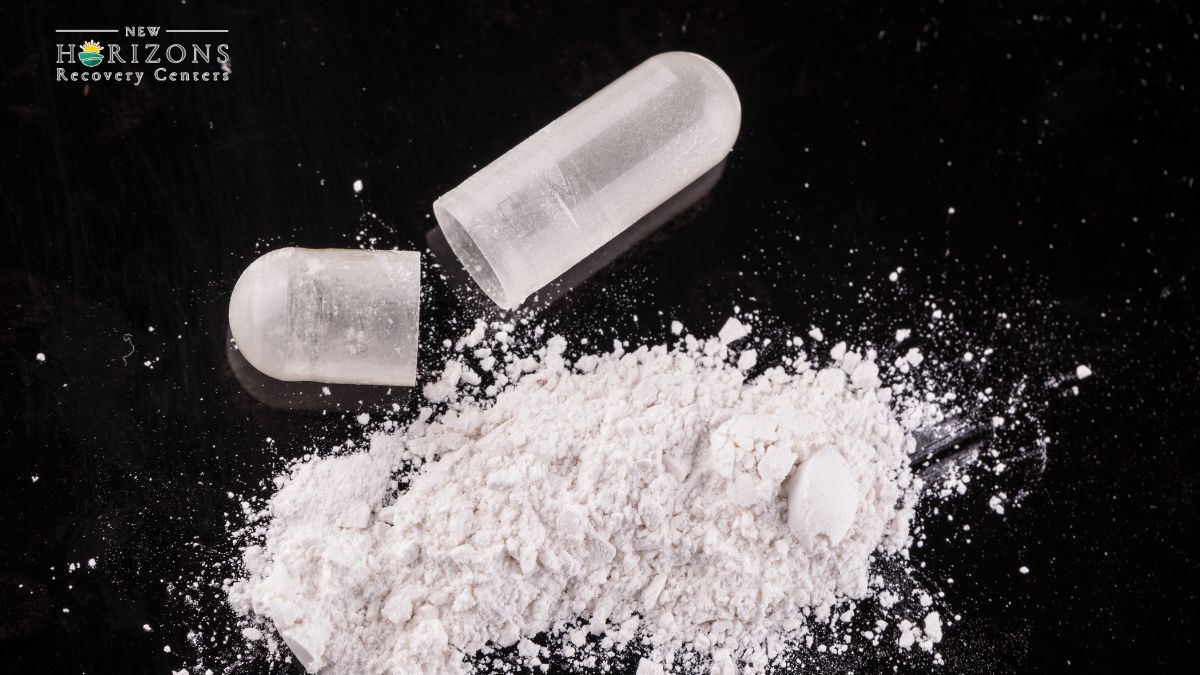Understanding Binge Drinking
Binge drinking is a pattern of alcohol consumption that involves consuming a large amount of alcohol in a short period of time. This behavior can have significant health and social consequences. In this section, we will explore the definition of binge drinking and its prevalence in the population.

Defining Binge Drinking
Binge drinking is typically defined as consuming five or more drinks for men and four or more drinks for women within about two hours. This pattern of drinking leads to a rapid increase in blood alcohol concentration [1]. It is important to note that these thresholds may vary slightly depending on different sources and countries.
Prevalence of Binge Drinking
Binge drinking is most common among younger adults aged 18-34 years old in the United States. According to national surveys, over 26% of individuals in this age group engage in binge drinking. However, binge drinking is not limited to this age group. It can occur across various age ranges and demographics.
Interestingly, binge drinking is more common in households with higher incomes. This highlights the need for education and prevention strategies to address binge drinking across all segments of the population.
It is essential to recognize the risks associated with binge drinking and take appropriate measures to prevent its harmful consequences. By understanding the definition of binge drinking and its prevalence, we can better address this issue and promote healthier drinking behaviors.
Short-Term Risks of Binge Drinking
Binge drinking, which is defined as consuming a large amount of alcohol in a short period, can have immediate and dangerous consequences. Understanding the short-term risks associated with binge drinking is crucial for raising awareness and promoting responsible alcohol consumption.
Alcohol Poisoning
One of the significant risks of binge drinking is alcohol poisoning, which occurs when a person consumes a dangerous amount of alcohol within a short period. This excessive alcohol intake can overwhelm the body's ability to metabolize alcohol, leading to dangerous failures in brain functions. Alcohol poisoning is a medical emergency and can be life-threatening if not treated promptly [3].
Injuries and Accidents
Engaging in binge drinking significantly increases the risk of injuries and accidents. Impaired judgment, decreased coordination, and slower reaction times due to alcohol consumption can contribute to a variety of accidents, including motor vehicle accidents, falls, drownings, and burns. These incidents can result in severe injuries, disabilities, or even fatalities [3].
Dangers for Pregnant Women
Binge drinking poses particular dangers for pregnant women and their unborn babies. Consuming alcohol during pregnancy increases the risk of miscarriage, stillbirth, or fetal alcohol spectrum disorders (FASDs). FASDs can lead to a range of physical, behavioral, and intellectual disabilities in the affected child. It is crucial for pregnant women to avoid alcohol completely to protect the health and well-being of their babies.
Understanding the short-term risks of binge drinking is essential for individuals to make informed decisions about their alcohol consumption. It's important to educate oneself and others about the potential dangers and to encourage responsible drinking habits. If you or someone you know struggles with binge drinking, seeking help and support is vital for a healthier and safer lifestyle.
Long-Term Risks of Binge Drinking
Binge drinking, the act of consuming excessive amounts of alcohol in a short period, can have significant long-term effects on an individual's health. It is important to understand these risks in order to make informed decisions regarding alcohol consumption. Some of the long-term risks associated with binge drinking include effects on the brain, increased risk of diseases, and mental health disorders.
Effects on the Brain
Binge drinking can lead to changes in the brain that can have lasting effects. Prolonged and excessive alcohol consumption can result in alterations to the brain's structure and functioning. According to Hackensack Meridian Health, addictive behaviors can be reinforced, and areas controlling impulsive behavior may atrophy or shrink, contributing to the cycle of reward-driven drinking.
Increased Risk of Diseases
Excessive alcohol consumption, including binge drinking, is associated with an increased risk of various diseases. According to Hackensack Meridian Health, these risks include:
- High blood pressure
- Heart disease
- Certain cancers (e.g., breast, mouth, throat, liver)
- Liver disease
- Digestive issues
Furthermore, studies have challenged the previously suggested health benefits of moderate alcohol consumption, linking even moderate intake to health issues such as high blood pressure, arrhythmias, heart attack, stroke, and death. Excessive alcohol use over time can also result in certain types of cancer, liver disease, and digestive problems.
Mental Health Disorders
Binge drinking is associated with an increased risk of mental health disorders. According to Hackensack Meridian Health, these disorders can include anxiety and depression. It is important to recognize that alcohol can have a significant impact on mental well-being and may exacerbate existing mental health conditions.
It is crucial to understand the potential long-term risks of binge drinking and consider the impact on overall health. Seeking help and support is essential for individuals struggling with binge drinking or alcohol use disorder (AUD). Treatment options, such as counseling, support groups, and professional intervention, can provide the necessary resources to overcome alcohol-related challenges. By addressing binge drinking and its potential consequences, individuals can take steps towards healthier and more fulfilling lives.
Strategies to Prevent Binge Drinking
To address the issue of binge drinking effectively, a multi-faceted approach is necessary. Strategies to prevent binge drinking can be implemented at both the community and individual levels, with a particular emphasis on parental involvement and education.
Community-Level Approaches
Community-level approaches play a crucial role in preventing binge drinking. These strategies focus on implementing policies and interventions that target the broader population. Some effective community-level approaches include:
- Increasing Alcohol Taxes: Higher alcohol taxes have been shown to reduce alcohol consumption, including binge drinking. By making alcohol less affordable, it becomes a less attractive option for excessive consumption.
- Regulating Alcohol Marketing and Sale: Implementing regulations on alcohol marketing and sales can help reduce the exposure and availability of alcohol, especially to underage individuals. Restricting alcohol advertising and implementing responsible vendor programs can contribute to a decrease in binge drinking rates.
- Screening and Brief Interventions: Integrating screening and brief interventions into clinical settings can provide individuals with personalized feedback and guidance on their drinking habits. This approach has been effective in reducing binge drinking and promoting healthier drinking behaviors.
Individual-Level Approaches
Individual-level approaches focus on empowering individuals to make responsible choices regarding their alcohol consumption. These strategies aim to raise awareness and provide individuals with the tools to prevent binge drinking. Some effective individual-level approaches include:
- Setting Personal Limits: Establishing personal limits on alcohol consumption is an important step in preventing binge drinking. Individuals can define their own boundaries and stick to them, ensuring they do not exceed their desired alcohol intake.
- Avoiding Drinking Games: Drinking games often encourage excessive and rapid alcohol consumption, increasing the risk of binge drinking. By avoiding participation in drinking games, individuals can reduce the likelihood of engaging in harmful drinking patterns.
- Being Mindful of Drink Sizes: Being aware of the size of alcoholic beverages is crucial. Larger drink sizes can lead to unintentional overconsumption. Opting for smaller drink sizes or diluting alcoholic beverages can help individuals maintain a moderate drinking pattern.
Parental Involvement and Education
Parents play a significant role in preventing binge drinking among teenagers. By actively engaging in their children's lives and providing a supportive environment, parents can help deter risky behaviors. Some effective strategies for parental involvement and education include:
- Being Involved and Providing Emotional Support: Regularly communicating with teenagers, being involved in their activities, and providing emotional support can help reduce the likelihood of them engaging in binge drinking. Strong parent-child relationships contribute to a sense of belonging and may reduce the influence of peer pressure [5].
- Setting Good Examples: Parents should lead by example when it comes to alcohol consumption. Modeling responsible drinking behaviors and discussing the potential consequences of excessive alcohol use can help shape teenagers' attitudes towards alcohol.
- Educating About the Dangers of Binge Drinking: Early education about the dangers of binge drinking can have a significant impact on teenagers' choices. Programs that teach children about the risks associated with alcohol abuse, such as "Too Good for Drugs," can provide valuable knowledge and help prevent future binge drinking.
By implementing community-level approaches, empowering individuals through individual-level approaches, and fostering parental involvement and education, we can take significant steps towards preventing binge drinking and creating a healthier and safer environment.
Seeking Help for Binge Drinking
For individuals struggling with binge drinking, seeking help is a crucial step towards overcoming this harmful behavior. There are various treatment options and support systems available to assist in addressing alcohol use disorder (AUD) and stopping binge drinking.
Treatment Options for Alcohol Use Disorder
Seeking help from a healthcare provider, mental health professional, or attending support groups can be beneficial in addressing alcohol problems. Treatment for AUD often involves a combination of approaches, including medications and behavioral therapies. Research shows that the combination of medications with behavioral therapies is more successful than any single treatment approach.
Treatment Options and Description
Medications: Certain medications can help individuals reduce alcohol cravings and maintain sobriety. These medications are prescribed by healthcare professionals and should be taken under their guidance.
Behavioral Therapies: Various forms of behavioral therapies are effective in treating AUD. These may include cognitive-behavioral therapy, motivational interviewing, and couples or family therapy. These therapies help individuals understand their triggers, develop coping mechanisms, and learn healthier ways to manage stress and emotions.
Table based on information from NIAAA
Counseling and Support Groups
Counseling can be an essential component of the treatment process for binge drinking. Mental health professionals can provide guidance, support, and strategies to help individuals overcome their alcohol-related challenges. Counseling sessions may involve exploring underlying issues, identifying triggers, and developing personalized plans for recovery.
Support groups, such as Alcoholics Anonymous (AA), can be invaluable for individuals seeking to stop binge drinking. These groups provide a supportive environment where individuals can share their experiences, receive encouragement, and connect with others who have faced similar struggles. Attending meetings regularly can provide ongoing support and accountability throughout the recovery journey.
Professional Intervention
In some cases, professional intervention may be necessary to address severe binge drinking habits. Interventions involve a structured process where family members, friends, or healthcare professionals confront the individual about their drinking problem and encourage them to seek help. Professional interventionists can guide the intervention process, ensuring that it is conducted in a supportive and effective manner.
It's important to remember that seeking help requires courage and commitment. Talking to a healthcare provider, mental health professional, or attending counseling and support groups can provide you with the guidance, support, and tools needed to overcome binge drinking. With the right treatment and support, individuals can regain control over their drinking habits and lead healthier, fulfilling lives.
College Students and Peer Influence
When it comes to binge drinking, college students are particularly vulnerable due to the influence of their peers and the college environment. Understanding the role of peer relationships, the influence of the college environment, and the impact on drinking behavior is crucial in addressing this issue.
Role of Peer Relationships
Peer relationships have a significant impact on alcohol use among college students. The quality of these relationships can influence personal alcohol use through social reinforcement, modeling, and cognitive processes. Positive peer relationships can provide support and encouragement for responsible drinking behaviors, while negative or unhealthy relationships may contribute to excessive drinking.
The strength and nature of social reinforcement, modeling, and social cognitions regarding alcohol are influenced by the quality of peer relationships. A lack or breakdown of quality peer relationships can lead individuals to turn to alcohol as a way to cope with the absence of stable, intimate, and supportive friendships.
Influence of College Environment
The college environment plays a significant role in amplifying the influence of peers on alcohol use among students. Three aspects of the college environment contribute to this influence:
- Freedom from parental control: College provides students with newfound freedom and independence from parental supervision. This newfound freedom may contribute to increased alcohol use as students navigate their newfound autonomy.
- Adjustment to college life: The transition from high school to college can be challenging for many students. The stress and adjustment process may lead some students to turn to alcohol as a coping mechanism or to fit in with their peers.
- Alcohol as part of college culture: Alcohol consumption is often ingrained in the college culture, with parties, social events, and even academic activities often involving alcohol. This normalization of alcohol use can contribute to increased drinking behaviors among college students.
Impact on Drinking Behavior
The influence of peers and the college environment can have a significant impact on the drinking behavior of college students [6]. Excessive drinking can occur when alcohol use becomes an integral part of peer interactions. Students may seek out peers who consume alcohol and engage in shared drinking experiences, which can lead to increased drinking in social situations.
To address binge drinking among college students, it is essential to focus on promoting healthy peer relationships, creating a supportive college environment, and implementing interventions that target the influence of peers. By fostering positive social connections, providing education on responsible drinking, and offering alternative activities, colleges can help mitigate the negative impact of peer influence on alcohol use.
Addressing binge drinking among college students requires a comprehensive approach that involves the collaboration of educational institutions, students, parents, and communities. By understanding the role of peer relationships, the influence of the college environment, and the impact on drinking behavior, we can work towards creating a healthier and safer environment for college students.
References
[2]: https://www.niaaa.nih.gov/publications/brochures-and-fact-sheets/treatment-alcohol-problems-finding-and-getting-help
[3]: https://www.hackensackmeridianhealth.org/en/healthu/2023/06/29/heres-what-binge-drinking-does-to-your-body-long-term
[4]: https://www.niaaa.nih.gov/publications/brochures-and-fact-sheets/binge-drinking
[5]: https://alcohol.org/teens/peer-pressure-drinking/
[6]: https://www.ncbi.nlm.nih.gov/pmc/articles/PMC2635065/





-ink.jpeg)
-ink.jpeg)
